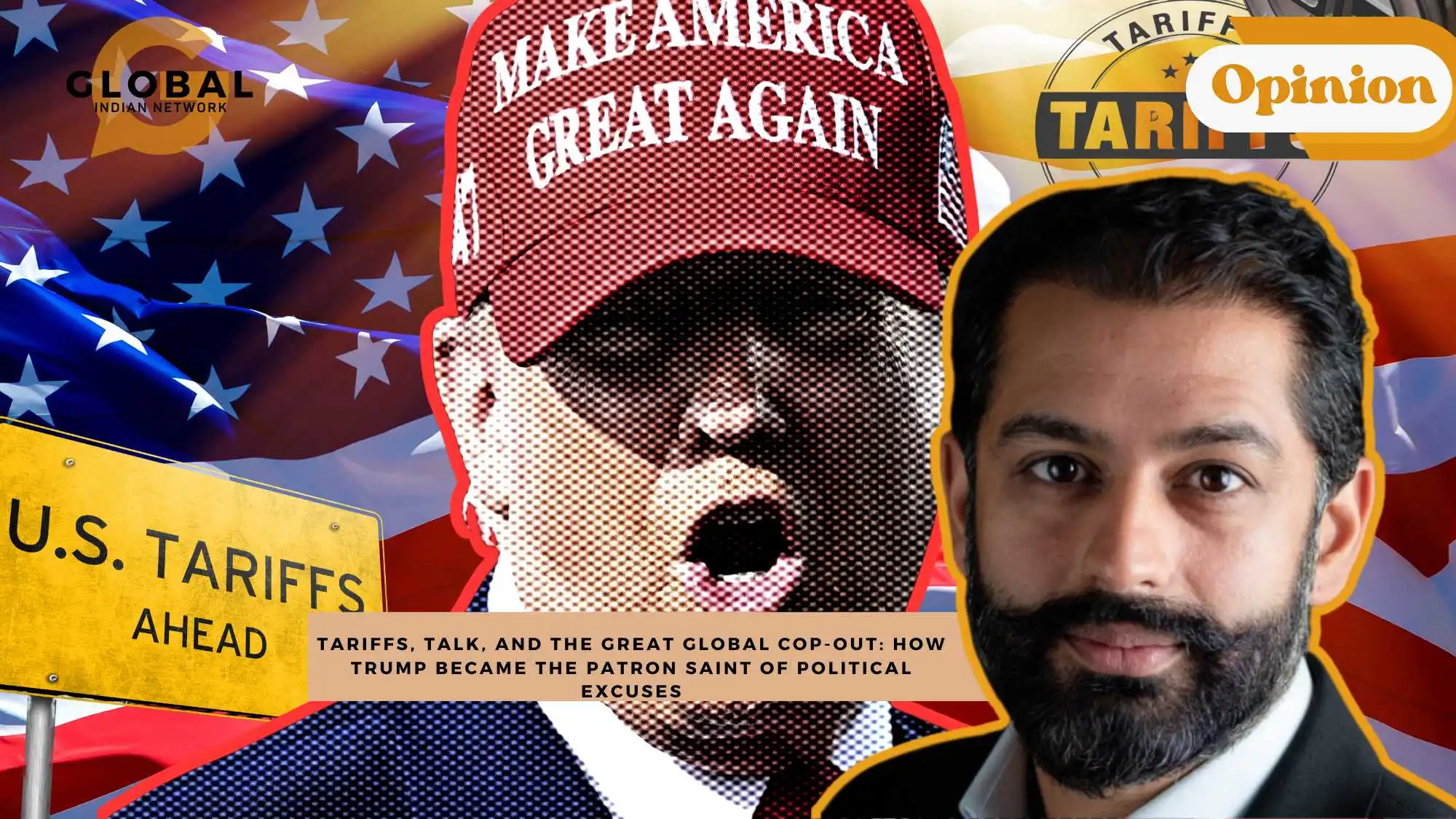Let’s not sugarcoat it.
We are living in an age where leadership is less about long-term vision and more about short-term storytelling, where transformation is promised, innovation is paraded, and economic rejuvenation is dangled like a carrot—only to be quietly replaced by excuses when reality bites.
And now, thanks to Donald Trump’s trade tariffs, politicians around the globe have been handed the ultimate get-out-of-jail-free card: blame America. More specifically, blame Trump’s protectionist policies.
Struggling to build local industry? Tariffs.
Can’t deliver on jobs? Tariffs.
Imports too expensive? Tariffs.
Supply chains collapsing? Trump again.
It’s become the perfect political scapegoat in a world filled with leaders who are more interested in headlines than heavy lifting—more skilled at spinning a story than steering a nation.
Promises Made. Promises Parked.
Elected officials enter office with bold manifestos: stronger labour markets, job creation, high-tech economies, and a prosperous middle class. Yet, more often than not, these promises become nothing more than podium performances. And when delivery falls short, fingers are pointed outward.
Let’s unpack the reality.
Mauritius, long praised for its business-friendly climate, now stands at a crossroads. With aspirations to become the “Singapore of Africa,” the real question is—will it follow through with real planning and diversification, or will it too fall into the trap of convenient geopolitical blame when economic turbulence strikes?
Botswana experienced a 0.9% GDP contraction in late 2023. While global shifts are cited, the underlying problem is its overdependence on raw mineral exports and the absence of diversified, value-adding industries.
Pakistan faces one of the worst economic crises in its modern history—runaway inflation, an imploding rupee, and foreign reserves nearing depletion. Officials blame everything from floods to tariffs to foreign conspiracies. But few address the years of mismanagement, bloated bureaucracy, and missed reform windows that got them here.
In Trinidad and Tobago, inflation soared past 7%, yet there’s been little real investment in food security or innovation. The story? “External conditions.” The truth? Policy stagnation and a lack of strategic foresight.
And then there’s Suriname, where I had the chance to speak with President Chan Santokhi. The country’s economic output remains heavily tied to the oil and extractives sector, with bold promises made to change the fate of its nations and struggling youth. The question is unavoidable: if oil falters or global prices shift, does the Government have the ability to navigate the rocky waters, or will we once again hear the Trump-syndrome defense—external pressures, unfair trade terms, global instability—as the explanation for domestic vulnerability?

Singapore: The Outlier
Contrast that with Singapore—a nation that, while facing the same global pressures, hasn’t looked for scapegoats. Instead, their leadership openly acknowledges the importance of scenario planning, institutional resilience, and built-in redundancies. In their national speeches, they’ve stated it plainly: economies don’t fail because of crises; they fail because they weren’t prepared.
The “Ukraine Price Myth”
We saw a similar sleight of hand during the Ukraine conflict. In the UK, prices soared across sectors—energy, food, transport, and even everyday essentials. But rather than root causes, we were fed a single line: “It’s because of Ukraine.” Bread prices tripled. Cucumbers became luxury items. Haircuts spiked.
The truth? Much of the inflation had little to do with Eastern Europe and everything to do with longstanding domestic vulnerabilities. The war was just an excuse—a convenient smokescreen to hide the cracks that had been widening for years.
Urgency politics took over: “Act now or suffer!” “Support this policy or be left behind!” All while sidestepping the simple question—What was your plan before the storm hit?
A Word to the Global Indian Community
To the global Indian community—whether running a business in Malawi, negotiating trade deals in South Africa, or building futures across the Caribbean—these games of deflection are more than frustrating. They’re damaging.
Because when economies wobble, it’s us who absorb the cost.
We get taxed more. We hustle harder. We’re forced to improvise, to fix what governments failed to build.
And if Trump isn’t blamed, we often become the political football. Our hard-earned success is too easily repackaged as evidence of inequality, foreign influence, or elitism—weaponised in the theatre of identity politics.
Yet, we remain locked out of real decision-making. Marginalised when we should be mobilised. We contribute, we innovate, and we adapt—but we are rarely heard on the global stage collectively.

Ask Better Questions
When they blame tariffs, ask: What industries have you actually developed?
When they blame war, ask: What buffers did you put in place?
When they blame the “world order,” ask: What have you done with your time in power?
Because this isn’t just about Trump.
It’s about a global leadership deficit.
A refusal to take responsibility.
A system that punishes resilience and rewards spin.
We don’t need more scapegoats.
We need a strategy.
We need honesty.
We need leaders who plan before the crisis—not just perform after it.
Trump may have changed the global economic tone. But if your entire strategy is to point at him and shrug, maybe you were never playing the game right to begin with.
Want to hear what’s really shaping nations?

Discover our destination pages—deep dives into the honest conversations facing countries and the real opportunities behind them.
Have an opinion on this matter? Let us know your thoughts in the comment section below. If you want us to feature your opinion piece, send it to larra@globalindiannetwork.com.









